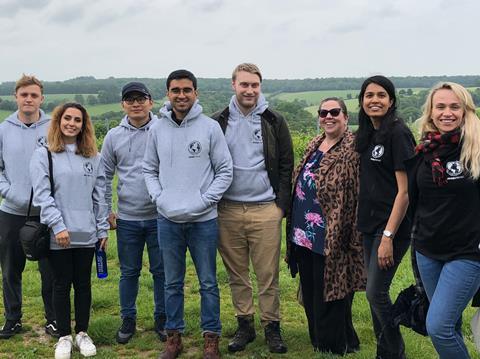The funding will be used to commercialise prototypes that detect diseases and control pests using robotics and AI

Four businesses using cutting-edge technology to advance sustainable horticulture have been awarded £500,000 by Growing Kent & Medway.
According to the world leader in sustainable agriculture, the funding will be used to fully commercialise their prototypes.
Automation, robotics, and AI will be harnessed to control pests and detect diseases in fruit and vine crops in two of the research projects.
The funding was awarded through Growing Kent & Medway’s ‘Prototyping and Demonstrator ‘competition, which was designed to develop and bring to market new technologies in the horticultural food and drink supply chain.
Artificial intelligence and machine learning will be used to analyse satellite imagery to detect and predict the presence of plant diseases in UK vineyards.
The nine-month project, led by Deep Planet, will be delivered with prominent UK wine producers and the Wine Innovation Centre at NIAB.
The project aims to identify the presence of important fungal diseases, like botrytis, and powdery and downy mildew, more effectively than current detection methods that use humans or drones.
Two further projects will use advances in biotechnology to test the by-products of horticultural crops to create new sustainable food ingredients.
Director at Growing Kent & Medway, Dr Nikki Harrison said: “This funding competition was designed to support business-focused innovative technology development that has the potential to be applied in a real-world commercial environment.
“These collaborative and innovative projects demonstrate how advances in Agri-technology can help to make our food systems more sustainable.”
She added: “From using energy more efficiently and reducing inputs like crop protection chemicals, to increasing productivity and reducing food waste.”
Co-founder of Deep Planet Ltd, Sushma Shankar commented: “We applied for the Prototyping and Demonstrator Fund to help bring climate change resilience to vineyards in the Kent and Medway region.
“Our project will enable UK vineyards to proactively mitigate the impact of disease by detecting the type of disease and employing appropriate management strategies.
“This will help farmers to efficiently reduce their costs in mitigating the disease but also improve the yield and quality of the grapes.”
She concluded: “With UK’s wine industry growing significantly, the benefits of this project will grow multifold, as we see it being integrated into regenerative and sustainable vineyard management practices.”



